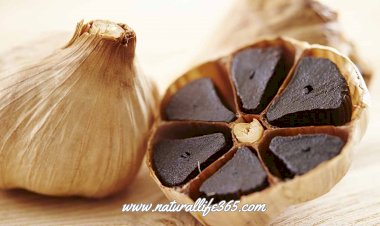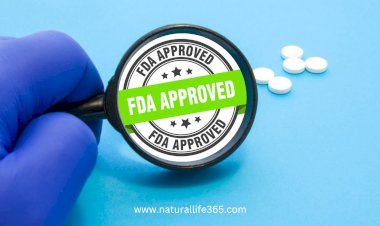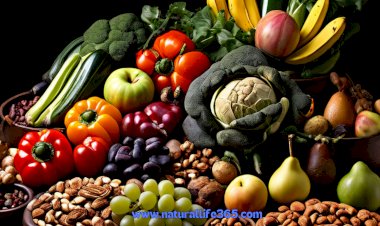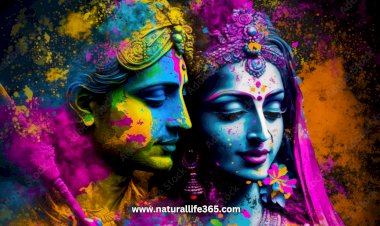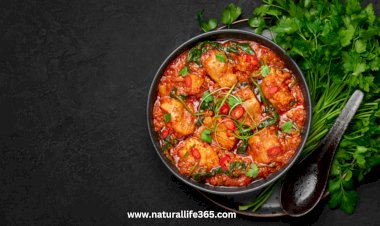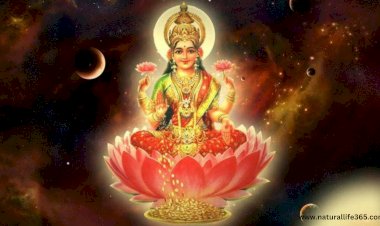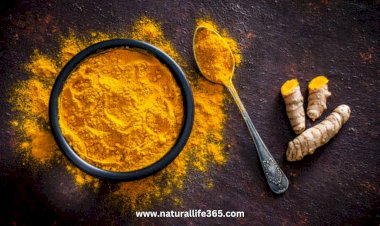Ghee vs. Butter: Which Is Healthier?
This blog explores the nutritional differences, potential health benefits, and risks of ghee and butter to help you determine which one is healthier for you. Learn more about these two popular fats and make informed choices for your diet and health.
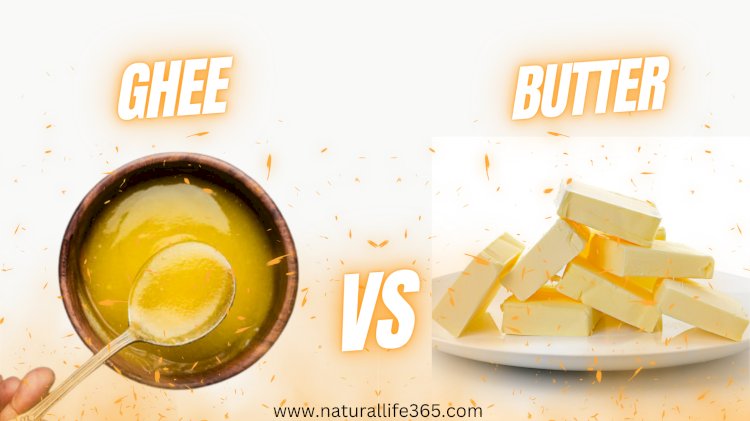
When it comes to cooking, two of the most commonly used ingredients are ghee and butter. Both of these dairy products are popular for their unique flavor, texture, and versatility in the kitchen. However, there has been a longstanding debate about which one is healthier for our bodies.
Ghee is a type of clarified butter that has been used for thousands of years in Indian cooking and Ayurvedic medicine. It is made by heating butter until the water content evaporates and the milk solids separate from the pure butterfat. What is left is a golden, nutty-flavored oil that has a higher smoke point than regular butter.
On the other hand, butter is made by churning cream or milk until it separates into solid butter and liquid buttermilk. Butter has been a staple in Western cuisine for centuries and is often used for its creamy, rich taste.
While both ghee and butter are delicious and can enhance the flavor of many dishes, the question of which one is healthier remains. In this article, we will explore the nutritional differences between ghee and butter, as well as the potential health benefits and risks associated with consuming each one. By the end, you'll have a better understanding of which one may be the better choice for your health and wellness goals.
Maybe you also want to read Why is Ghee Important in Indian Culture?
Nutritional Comparison of Ghee and Butter
To understand which one is healthier, it's important to compare the nutritional values of ghee and butter. Let's start with the calorie content. Ghee and butter both have high caloric values due to their high fat content. However, ghee has slightly more calories than butter. One tablespoon of ghee contains about 112 calories, while one tablespoon of butter contains about 102 calories.
Moving on to the fat content, ghee, and butter are both primarily composed of saturated fats. However, ghee contains slightly more fat than butter. One tablespoon of ghee contains about 12 grams of fat, while one tablespoon of butter contains about 11 grams of fat.
When it comes to vitamin and mineral content, ghee and butter have some similarities and differences. Both contain small amounts of vitamin A, vitamin E, and vitamin K2. However, ghee is a better source of vitamin K2 than butter. Additionally, ghee does not contain any lactose or casein, which are components of dairy that some people may be allergic to or intolerant to.
Overall, when comparing the nutritional values of ghee and butter, there isn't a significant difference between the two. However, it's important to note that both are high in calories and saturated fat, so moderation is key when consuming either one. In the next section, we'll explore the potential health benefits and risks of ghee.
Health Benefits and Risks of Ghee
Ghee has been used in Ayurvedic medicine for centuries, and it is believed to have a variety of health benefits. Let's explore some of the potential benefits of consuming ghee:
- Digestive Health: Ghee is rich in butyric acid, which is a type of short-chain fatty acid that can help improve digestive health. It can also help reduce inflammation in the gut and improve the absorption of nutrients.
- Lactose and casein-free: As mentioned earlier, ghee is made by simmering butter and removing the milk solids, which makes it free from lactose and casein. This makes ghee a suitable option for people with lactose intolerance or milk allergies.
- Heart Health: Ghee is a good source of conjugated linoleic acid (CLA), which is a type of omega-6 fatty acid that has been shown to have a positive effect on heart health. Some studies have suggested that CLA can help reduce inflammation, improve blood sugar levels, and lower cholesterol.
- Anti-inflammatory Properties: Ghee contains antioxidants and anti-inflammatory compounds (high in butyric acid, a short-chain fatty acid) that can help reduce inflammation throughout the body. This can have a positive impact on a variety of health conditions, such as arthritis and asthma.
While ghee has several potential health benefits, it's important to note that it is also high in saturated fat. Consuming too much saturated fat can increase your risk of developing heart disease, increase your weight, and other health conditions. Therefore, it's important to consume ghee in moderation and balance it with other healthy fats in your diet.
Health Benefits and Risks of Butter
Butter has been a staple in Western cuisine for centuries, and it too has several potential health benefits and risks. Let's explore them in more detail:
- Nutrient Content: Butter is a good source of several nutrients, including vitamin A, vitamin D, vitamin E, and vitamin K2. These vitamins are essential for maintaining healthy bones, skin, and immune system function.
- Brain Health: Butter is a rich source of omega-3 and omega-6 fatty acids, which are important for brain health and development. These fatty acids help support brain function, memory, and cognitive performance.
- Cholesterol and Heart Health: While butter is high in saturated fat, some studies have suggested that it may not be as harmful to heart health as previously thought. A 2018 study published in the American Journal of Clinical Nutrition found that consuming high-fat dairy products, such as butter, did not increase the risk of heart disease.
However, it's important to note that consuming too much butter can still lead to weight gain and an increased risk of heart disease. Therefore, it's important to consume butter in moderation and balance it with other healthy fats in your diet.
Additionally, butter is a dairy product and may contain lactose or casein, which can be problematic for people with dairy allergies or lactose intolerance.
Overall, both ghee and butter have potential health benefits and risks, and the key is to consume them in moderation and balance them with a good diet and active lifestyle. Consult with a healthcare professional to determine the best approach for your specific health needs.
Culinary Comparison
Ghee and butter both have unique culinary properties that make them versatile and popular ingredients in various cuisines around the world. Here's a closer look at their culinary properties:
Ghee:
- High smoke point: Ghee has a high smoke point of around 485°F (252° C), which makes it ideal for high-heat cooking methods like frying and sautéing.
- Nutty flavor: Ghee has a rich, nutty flavor that is well-suited for Indian and Middle Eastern cuisines. It can also be used as a spread or dip, similar to butter.
- Longer shelf life: Ghee has a longer shelf life than butter, thanks to the removal of milk solids and water, which can cause spoilage. Ghee can last up to a year in a cool, dark place or even longer when refrigerated.
Butter:
- Creamy texture: Butter has a creamy texture and a slightly sweet flavor that makes it a versatile ingredient in both sweet and savory dishes.
- Lower smoke point: Butter has a lower smoke point of around 350°F (176° C), which makes it better suited for lower-heat cooking methods like baking and sautéing at medium heat.
- Can add richness and flavor: Butter is often used to add richness and flavor to dishes like sauces, soups, and baked goods. It can also be used as a spread or topping for bread and vegetables.
When it comes to cooking with ghee vs. butter, the choice often comes down to personal preference and the specific cooking method being used. Ghee is a better option for high-heat cooking methods like frying, while butter is better suited for lower-heat cooking methods and adding richness and flavor to dishes.
In terms of taste, ghee has a unique nutty flavor that can add depth to dishes, while butter has a creamy, slightly sweet flavor that is more versatile. However, both can be used interchangeably in many recipes, depending on personal taste and dietary needs.
Overall, when it comes to the culinary properties of ghee and butter, the choice often comes down to personal preference and the specific dish being prepared.
You can also read How to Get Enough Protein as a Vegetarian: A Comprehensive Guide
Recommendation for Consumption of Ghee or Butter
In conclusion, both ghee and butter have their own unique nutritional profiles and potential health benefits and risks. While ghee is a better source of vitamin K2 and does not contain lactose or casein, it is also higher in calories and fat than butter. On the other hand, butter is a good source of several essential vitamins and fatty acids, but it is also high in saturated fat.
When it comes to deciding which one is healthier, the answer is not straightforward. It ultimately depends on your individual health needs and dietary preferences. However, both ghee and butter can be a part of a healthy diet when consumed in moderation and balanced with other healthy fats and nutrient-dense foods.
If you have any health concerns or questions about incorporating ghee or butter into your diet, it's best to consult with a healthcare professional or registered dietitian. They can help you determine the best approach for your individual needs and provide guidance on making healthy food choices.
The Best Ghee for You
I will be honest, before moving to India in 2015 I had never heard about this clarified butter called Ghee. The first time I tried it was with rice and cooked vegetables and was love at first sight (or first bite). Since then, I have consumed it but very occasionally and in a very moderate way, you know, we should not abuse it to avoid health problems.
I have tried several brands, some have a slight difference in flavor, I suppose it is because it depends on the type of milk that was used. Next, I leave you a list of the brands/products that I have tried and liked (in terms of quality and price) in case you also want to try them.
A2 Desi Cow Ghee by Gramya Farms
According to this Desi cow ghee (300 ml), the brand Gramy Farms specified that they take proper care of their cows on a farm that is 100% natural and made by using regenerative farming practices; a technique which is exactly how nature intended it to be. The cows are milked only after the calves have had their share.
They also mention that this ghee does not have Binders, Fillers, Additives, and Preservatives. Their desi ghee is made only from natural whole curds full of Omega 3 and Omega 6 - Vitamins A, E, D, K, and CLA (conjugated linoleic acid) - Rich in antioxidants, it has anti-bacterial - antifungal and anti-inflammatory properties - It contains butyric acid known to improve brain function and protect the brain from age-related damage.
A2 Desi Cow Ghee by TDN Farm Fresh
TDN Farm A2 Ghee (500 ml) is fully granular (danedar) in texture with golden yellow color and is made from the A2 milk of Grass-fed Kankrej cow milk of the north region of Gujarat and the South Region of Rajasthan around Aravali forest Hill. Also, TDN FarmA2 Ghee comes in Pure and Natural forms, Preservative free, Chemical free, gluten-free, Cruelty-free, Gluten, Sugar-free, and Non-GMO, with No Artificial Ingredients like color, flavors, or sweeteners added.
On the other hand, TDN Farm A2 ghee is an A2 lab certified by NDDB (National Dairy Development Board), USFDA compliance, and FSSAI certified so your health is in good hands.
Desi Ghee (Buffalo) by Pure Whites Store
This ghee (900 ml) is made from the milk of the Murrah breed of buffalo which is a domestic water buffalo originating from India. It is the Best Buffalo Breed in India resistant to diseases. When buffalo milk is boiled and cooled a spoonful of curd is added to this milk and kept at room temperature overnight. The curd is then churned to extract butter from it. The butter is heated on low flame to make Ghee from it.
Buffalo ghee induces natural sleep and also helps in bleeding problems arising due to intestinal disorders like piles and sprues. It improves the human body’s ability to absorb minerals and nutrients. It can act as a remedy for stomach ulcers and other digestive issues. Since it helps in metabolism, consumption can also help in relieving issues like gastritis, constipation, and other stomach-related ailments.
A2 Milk Desi Cow Ghee by Vediko Origins Store
This pure A2 desi cow ghee (250 ml) is made in the traditional bilona method, in which whole A2 milk is used to make curd, and then the curd and butter are churned and slowly heated to produce ghee. In addition to being high in healthy fats, ghee made from the milk of grass-fed cows is also an excellent source of vitamins A, E, and K. A2 cow ghee's high concentration of amino acids makes it easy to digest and a good alternative for lactose-intolerant individuals.
This desi cow ghee can be used in cooking instead of other vegetable oils. Can also be used with milk. One teaspoon of ghee with warm milk helps in constipation and joint health.
Heritage Cow Ghee with Spout Pouch, 500ml
This time-tested process ensures the rich flavor and aroma of ghee while preserving its natural health benefits. The milk used in Heritage Cow Ghee comes from cows raised on a natural grass diet, resulting in ghee that's higher in vitamins and healthy fats like Omega-3s. Enjoy ghee without worrying about dairy sensitivities.
Ghee is perfect for high-heat cooking like sauteing, stir-frying, and even deep-frying, without burning. The 500ml pouch is easy to store and use, with a mess-free spout for effortless pouring.
A2 Gir Cow Bilona Desi Ghee by AUMILK
Ghee has a higher smoking point making it ideal for cooking and has the highest absorption rate of all oils. It helps improve digestion, is good for the skin, assists in weight loss, boosts immunity, and maintains a healthy heart.
Ayurveda lays special emphasis on the process of making ghee. Raw Milk from the brand's Gir Cows is heated and fermented overnight to make curd. The curd is then churned gradually to extract Makhan which is then heated on a slow flame to make Vedic Desi Bilona Ghee.
Do you also love ghee? Have you ever tried to make ghee at home? Share your thoughts!![]()
References:
If you value these free online resources provided by Natural Life 365, please consider supporting my website by sharing the blogs![]()
DISCLAIMER:
Some of the links in this content may be affiliate links. This means that if you click on one of the links and make a purchase, I may receive a commission (at no extra charge to you). However, I only recommend products that I personally use and have tested myself. Also, understand that I have taken reasonable steps to ensure that the information on this content is accurate, but I cannot represent that the website(s) mentioned in this post are free from errors. Please, check the Affiliate Disclosure at the bottom of this website.











